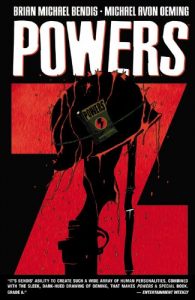 Considering how close I am to the end of the published Powers series, you would think I would not have gone three and a half years since the last one I read. That’s just weird. Even more contrary to expectations (well, mine at least), that gap is not the problem I had with the book.
Considering how close I am to the end of the published Powers series, you would think I would not have gone three and a half years since the last one I read. That’s just weird. Even more contrary to expectations (well, mine at least), that gap is not the problem I had with the book.
Powers: Z is… well, okay, they’re all about murders. But this is about the murder of the guy who killed Hitler at the end of World War II. Who you would think would be popular enough to have been mentioned by now, especially since apparently our immortal main character used to hang out with Z during and after the war. But okay, comics retcon all the time, and that would not have caused me to blink if the rest hadn’t been so confusing. Which I cannot really explain without massive spoilers, and I’ll just respond if someone asks instead of assuming they’re needed.
But my problems, at broad strokes, included a) my occasional inability to distinguish between the present and flashbacks to the 1950s, b) caused in part (probably) by those flashbacks not actually being very important from either a plot or (worse) a character development perspective. Other than the basic “look, these guys were mobsters in the 1950s, and the people in the modern day plot are also mobsters” parallelism, there just really wasn’t anything there. Finally, c) the fifth issue in the book ended with some really big dangling plot threads, whereupon the sixth issue covered a completely new murder with no apparent tie to or resolution of the prior story, all for the sake of a last second character-driven cliffhanger. Which I sound negative about, but I would not if I hadn’t ended up feeling so much like I didn’t get a complete story in the service of said cliffhanger that I actually spent some research time seeing if there was a missing issue or a misprint of my book or something. As far as I can tell: there was not.
But all the Amazon reviews of the book are very positive, so maybe it’s just me regardless? I have no idea.
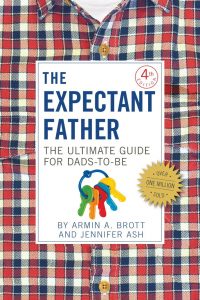 There are two things working against me here. 1) I am not used to reviewing reference books, and 2) I’ve been reading
There are two things working against me here. 1) I am not used to reviewing reference books, and 2) I’ve been reading 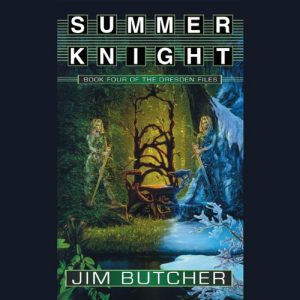 I am shocked to see that we finished listening to the last Dresden Files book less than six month ago. It really seems much longer ago. Which means that yay, still accomplishing something here. Anyway: as usual, the first and most important part of
I am shocked to see that we finished listening to the last Dresden Files book less than six month ago. It really seems much longer ago. Which means that yay, still accomplishing something here. Anyway: as usual, the first and most important part of  This will be a long one. It will definitely contain a bunch of spoilers, but not for a while and not without notice. Also below a cut, but that’s only so useful unless you’re on the front page of my site, and nobody but me ever is.
This will be a long one. It will definitely contain a bunch of spoilers, but not for a while and not without notice. Also below a cut, but that’s only so useful unless you’re on the front page of my site, and nobody but me ever is.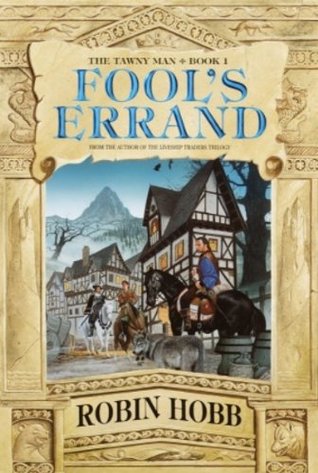 My Hobbsian (and let’s be honest, to a very real extent Hobbesian) journey continues, with the first book of the Tawny Man trilogy.
My Hobbsian (and let’s be honest, to a very real extent Hobbesian) journey continues, with the first book of the Tawny Man trilogy. 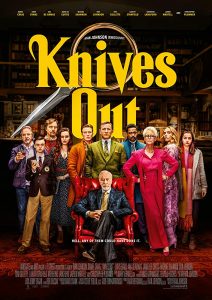 As you cannot in any way ascertain from my shoddily maintained review site, it’s been a little while since I saw any movies, and so when Thanksgiving and its multiple days off and/or light work load came along, it thusly became movie time. Of course, that’s been nearly a week, so I can not remember what other movies were in contention anymore, only that what we actually saw was
As you cannot in any way ascertain from my shoddily maintained review site, it’s been a little while since I saw any movies, and so when Thanksgiving and its multiple days off and/or light work load came along, it thusly became movie time. Of course, that’s been nearly a week, so I can not remember what other movies were in contention anymore, only that what we actually saw was 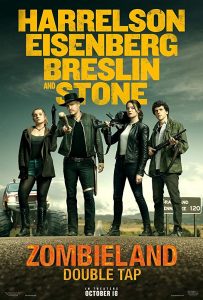 I think this is the worst I’ve ever done. I’m over 90% sure I haven’t missed any reviews and this is the only old one, but damn. Did I read a book and later forget? Probably not, since I take my Hobb slowly, and because of the standard refrain of busy busy work towne, not to mention a board game convention and other various life distractions. Then again… uh-oh, I’d better check the Deathlands stuff. I think that was only while camping and has already been addressed.[1]
I think this is the worst I’ve ever done. I’m over 90% sure I haven’t missed any reviews and this is the only old one, but damn. Did I read a book and later forget? Probably not, since I take my Hobb slowly, and because of the standard refrain of busy busy work towne, not to mention a board game convention and other various life distractions. Then again… uh-oh, I’d better check the Deathlands stuff. I think that was only while camping and has already been addressed.[1]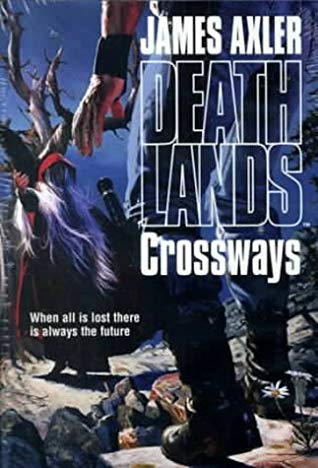 As usual, a weekend in the woods means another Deathlands book[1]. I don’t have a lot to say about it, because it was extremely transitional. Also because reviewing these is starting to feel a little like reviewing individual issues of comics? I think the latter is more true because this one was transitional. Like, when you have a really good four to six issue Spider-Man or Avengers run, and they’ve set up hints about what will happen next that’s big, but in between there are a couple of episodic villain of the week bits, with maybe two panels each dedicated to “no really, the next story is about to happen”? This is that but in book form.
As usual, a weekend in the woods means another Deathlands book[1]. I don’t have a lot to say about it, because it was extremely transitional. Also because reviewing these is starting to feel a little like reviewing individual issues of comics? I think the latter is more true because this one was transitional. Like, when you have a really good four to six issue Spider-Man or Avengers run, and they’ve set up hints about what will happen next that’s big, but in between there are a couple of episodic villain of the week bits, with maybe two panels each dedicated to “no really, the next story is about to happen”? This is that but in book form.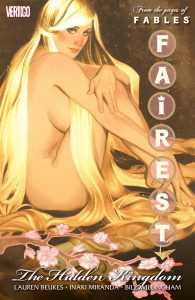 I’m going to start in a couple of weird places. First, a word about Amazon. I understand that it has turned into something of a flea market, like, from an observational perspective. This doesn’t bother me because I can mostly tell what I’m buying and what I’m not. I hear people talk about counterfeits, and I believe it, but I’m either okay at this or lucky, and either way, yay. I bring this up because I just saw something unpleasant while preparing for this review. The link I found for
I’m going to start in a couple of weird places. First, a word about Amazon. I understand that it has turned into something of a flea market, like, from an observational perspective. This doesn’t bother me because I can mostly tell what I’m buying and what I’m not. I hear people talk about counterfeits, and I believe it, but I’m either okay at this or lucky, and either way, yay. I bring this up because I just saw something unpleasant while preparing for this review. The link I found for 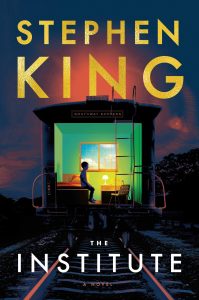 It’s nice to have read a book within a reasonable timetable for a change. I mean, sure,
It’s nice to have read a book within a reasonable timetable for a change. I mean, sure,